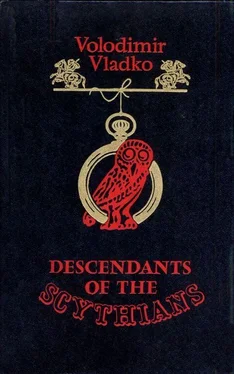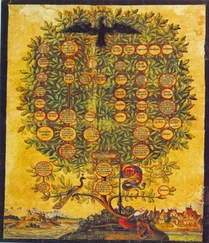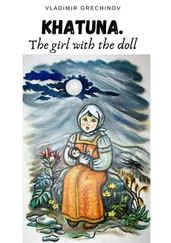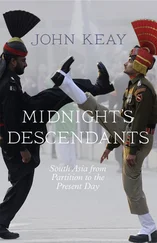Volodimir Vladko - Descendants of the Scythians
Здесь есть возможность читать онлайн «Volodimir Vladko - Descendants of the Scythians» весь текст электронной книги совершенно бесплатно (целиком полную версию без сокращений). В некоторых случаях можно слушать аудио, скачать через торрент в формате fb2 и присутствует краткое содержание. Город: Kiev, Год выпуска: 1986, Издательство: Dnipro Publishers, Жанр: Фантастика и фэнтези, на английском языке. Описание произведения, (предисловие) а так же отзывы посетителей доступны на портале библиотеки ЛибКат.
- Название:Descendants of the Scythians
- Автор:
- Издательство:Dnipro Publishers
- Жанр:
- Год:1986
- Город:Kiev
- ISBN:нет данных
- Рейтинг книги:4 / 5. Голосов: 1
-
Избранное:Добавить в избранное
- Отзывы:
-
Ваша оценка:
- 80
- 1
- 2
- 3
- 4
- 5
Descendants of the Scythians: краткое содержание, описание и аннотация
Предлагаем к чтению аннотацию, описание, краткое содержание или предисловие (зависит от того, что написал сам автор книги «Descendants of the Scythians»). Если вы не нашли необходимую информацию о книге — напишите в комментариях, мы постараемся отыскать её.
“…The representations of the Scythians that the explorers had seen earlier on the ancient fugs, vases, bas-reliefs, and jewelry, had now come to life before their very eyes…”
This is a gripping story of the bellicose Scythians, full of suspense and flights of imagination.
Descendants of the Scythians — читать онлайн бесплатно полную книгу (весь текст) целиком
Ниже представлен текст книги, разбитый по страницам. Система сохранения места последней прочитанной страницы, позволяет с удобством читать онлайн бесплатно книгу «Descendants of the Scythians», без необходимости каждый раз заново искать на чём Вы остановились. Поставьте закладку, и сможете в любой момент перейти на страницу, на которой закончили чтение.
Интервал:
Закладка:
One of them was accused of disrespect for the sacred traditions and ridicule of the priests. He, disarmed and bound, was brought before Hartak. The new chieftain was sitting on a dais richly decorated with red cloth. Dorbatay stood beside him, grim and relentless, wearing the ceremonial vestments of the high priest. The chiefs sat in a circle around the dais. A little further away the Scythians stood in a crowd. They spoke in undertone, casting sympathetic glances at the young hunter who, everybody realized, was doomed. The hunter probably realized this, too, but he stood firm.
Hartak raised his hand, giving the signal for the trial to begin. Then, in his croaking, rasping, dead voice, he asked the young man in the silence that had fallen:
“Do you plead guilty? Do you admit to having violated the sacred laws? Do you admit to having offended the holy priests?”
The hunter raised his head proudly and said boldly:
“No, I do not admit to having done anything wrong. I deny the charges. I have never violated the sacred laws. I have never offended the holy priests. I only stood up for an orphan girl who was wronged by a priest. He took away all her cattle, depriving her of all means of livelihood. She would have died of hunger. The priest said he was doing it in obedience to the will of the gods. But could just gods really have ordered this? The priest slaughtered the horse he took from the girl, for food. After doing that, can he be called a ‘holy’ priest? So, I gave him a piece of my mind, that’s all. How can that be considered an offense and violation of the sacred laws?”
He said this, looking Dorbatay straight in the eye. The crowd burst into a loud murmur, as quite a few people knew that everything he had said was true. Hartak was somewhat at a loss as to what to do next. Not so Dorbatay — the soothsayer knew perfectly well what to do! Raising his hand threateningly, he said in a loud, brazen voice:
“The priest did what the gods willed, otherwise the gods would have punished him! And they have not! And you, recreant, are being tried! You have offended a priest — a holy priest! — and thus provoked the ire of the just but severe gods whose will the priest obeyed. Be quiet! I will not have your arguments now! We will ask the great gods and they will tell us the whole truth. And we will do with you as the gods will advise us. Call the diviners! Let them consult the gods!”
Three priests, who in fact, looked very feminine, approached the dais with thick bundles of rods in their hands. They put the bundles on the ground, sank to their knees, raised their hands in the air, and began to sing a hymn in rasping voices. The priests asked the gods to hear their prayers and reply. The hunter stood waiting quietly. Everyone else waited eagerly for the sign from the gods.
When they finished praying, the priests spread the rods in front of them, bent low over them, and looked for patterns, murmuring sacred words. The crowd stood in glum silence. The artless hunter shrugged his shoulders as if to say: what could these rods reveal when all the people know that the priests robbed the girl?
The diviners straightened up at last. The elder diviner got to his feet, took a step forward and said:
“o great and wise chieftain, Hartak! o wise and holy servant of the gods, Dorbatay! The gods have made their reply. They have told us what it is to be done, and everyone of us has received the same answer. We have heard their thunderous voices. This man is guilty! He has insulted a priest and offended the gods. The gods are wrathful! This man has violated our sacred laws, and not for the first time!”
The hunter paled at the new accusation: he knew he would be sentenced to death. But when Dorbatay asked him again whether he pleaded guilty, the hunter said firmly, with great courage:
“No! I have done nothing wrong! These priests are lying! The gods could not have said anything of the kind, because they know I am innocent!”
“Bring other diviners here!” Dorbatay said calmly. “We shall do everything in compliance with our sacred laws!”
The number of diviners was now six — double what it was the first time. This was what the sacred traditions required if the accused refused to accept the verdict of the first three diviners.
The six, after casting their rods on the ground, confirmed the findings of the first three:
“He is guilty! He is guilty on all counts! The gods have said it again! And the gods demand that he be punished!”
Once again, the hunter rejected the charges. Then Dorbatay called in twelve diviners — twice as many as before. These twelve gave the same reply:
“The man is guilty! This is what our gods tell us! And they demand a harsh punishment for him!”
No more evidence was required; everything had been done in accordance with the sacred traditions. Dorbatay turned to Hartak:
“You must give a verdict, o great and wise chieftain Hartak!”
Without looking at the accused hunter who searched in vain for some final hope in Hartak’s expression, the chieftain said as though repeating words he had just been made to learn:
“May the gods’ will be fulfilled! The guilty man must be punished!”
Dorbatay imperiously waved his hand and the priests brought a wagon filled with dry branches up to the dais. Fierce bulls were harnessed to the wagon. The hunter was bound hand and foot and gagged. Then he was put in the wagon and more branches were put on top of him. The wood was set on fire, and the bulls were lashed mercilessly. The frightened beasts ran into the steppe, pulling the blazing wagon in which an innocent man who could neither move nor even cry out in his terrible anguish, was being incinerated.
Dorbatay followed the burning wagon with his cold eyes for some time, then raised his hands in a solemn gesture and told everyone to pray to the great gods and thank them for having meted out just punishment to the criminal who had gone against the sacred traditions of the Skolots.
Two other hunters who also were Varkan’s friends were put to death with much less pomp. One of them was hacked to pieces by priests with axes in the middle of the night. Afterwards, the priests claimed he was a recreant who had secretly worshipped the Greek gods. The Scythian gods had punished him by hurling the heavy, sharp axes from the skies. The simple-minded Scythians believed it…
The other hunter died during a hunt, struck down by a spear the priests claimed had also come from the skies. The other badly frightened participants in the hunt confirmed this, saying that they had seen for themselves a spear coming from somewhere above their heads, deep in the woods. The spear had not returned to the heavens, true enough, but who else except the gods could have hurled it in that forest when there was no one around but the hunters? However, Dorbatay and his closest associates knew very well where the weapon had come from: Dorbatay himself had ordered one of the priests to track down the hunters, climb up a tall tree and hurl the spear at the doomed man.
Varkan and his friends knew of all Dorbatay’s evil deeds. Unfortunately, they were helpless to do anything to prevent the murders. No wonder there were so many defections to Varkan in the forest from the very first days of the funeral journey. Those who felt their fates would be similar to those who had already died preferred to run away. Dorbatay and the priests could easily deal with them one by one, secretly or in the open, but when they joined together, they were a considerable force, having the tacit support of the many hunters and herdsmen who stayed with the main body of the Scythians but disapproved of the blood-thirsty priests’ cruelty.
It was only later that Varkan decided to stop allowing new defectors to join him. All the younger warriors were already with Varkan, as were those hunters who were in danger of being murdered by Dorbatay and the priests. The rest of Varkan’s supporters could remain with the main body of the Scythians for the time being. There, they could be more useful, as they could help with various matters before the uprising, and they also constituted a surprise force within the Scythian ranks which could strike at Dorbatay from within — from where he least expected an attack.
Читать дальшеИнтервал:
Закладка:
Похожие книги на «Descendants of the Scythians»
Представляем Вашему вниманию похожие книги на «Descendants of the Scythians» списком для выбора. Мы отобрали схожую по названию и смыслу литературу в надежде предоставить читателям больше вариантов отыскать новые, интересные, ещё непрочитанные произведения.
Обсуждение, отзывы о книге «Descendants of the Scythians» и просто собственные мнения читателей. Оставьте ваши комментарии, напишите, что Вы думаете о произведении, его смысле или главных героях. Укажите что конкретно понравилось, а что нет, и почему Вы так считаете.












